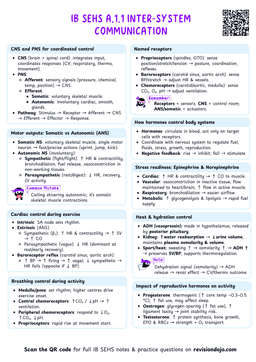The Goal-Setting Paradox: Why Elite Athletes Feel Less Satisfied After Achieving Difficult Goals
Goal Setting
Goal setting refers to the process of establishing clear, specific, and attainable objectives that an individual aims to achieve, often used to enhance motivation, performance, and persistence in athletic endeavors, typically involving a combination of outcome, performance, and process goals depending on the situation
The goal-setting paradox reveals that achieving difficult goals can sometimes lead to feelings of deflation rather than satisfaction.
Why Does the Goal-Setting Paradox Occur?
1. Emotional Deflation After Success
- Anticipation vs. Reality: The journey toward a goal often involves intense focus and anticipation. Once the goal is achieved, the absence of this drive can create a void, leading to feelings of deflation.
Think of an athlete who wins an Olympic gold medal. The moment of victory is exhilarating, but it's often followed by a sense of "What now?"
2. Shifting Reference Points
- Achieving a high goal can raise expectations for future performance, making past successes feel less significant.
- This constant recalibration can diminish the satisfaction of reaching even the most challenging goals.
It's like climbing a mountain only to find that the view from the top makes you focus on the next, higher peak.
3. Pressure to Maintain Success
- Success often brings external pressures, such as expectations from coaches, fans, or sponsors.
- These pressures can overshadow the joy of achievement, replacing it with anxiety about maintaining performance.
In the context of the goal-setting paradox, explain why setting higher goals can lead to potential negative effects for athletes, while setting lower, more achievable goals may have positive psychological benefits. (4 marks)
Solution
Mark Scheme:
- 1 mark: Explanation of the goal-setting paradox—the balance between challenging goals that enhance motivation and the risk of failure leading to negative emotions.
- 1 mark: Discussion of higher goals—can increase motivation, persistence, and performance, but failure may cause stress, frustration, or reduced self-confidence.
- 1 mark: Discussion of lower, achievable goals—may enhance self-efficacy, reduce anxiety, and promote consistent success, but could limit potential growth.
- 1 mark: Consideration of the optimal balance—coaches and athletes need to find a balance between challenging yet realistic goals to maximize performance and well-being.
Don't assume that achieving a goal will automatically lead to satisfaction. The emotional response to success is complex and influenced by many factors.
Goal Adjustment: A Key to Sustained Motivation
- While setting goals is important, the ability to adjust them is even more critical. This involves two main processes:
- Goal Disengagement: Letting go of unattainable goals to avoid frustration and burnout.
- Goal Re-engagement: Identifying new, meaningful goals to maintain motivation and well-being.
- Athlete Rejected from a Soccer Academy: A young player who doesn't make it into an elite soccer academy might re-engage with a new goal, such as joining a different team or focusing on individual skill development.
- Injury Recovery: A runner with a stress fracture unable to compete in a marathon may adjust their goal to focus on rehabilitation and strength training before returning to competition.
- Changing Events: A sprinter struggling to qualify in the 100m may shift their focus to the 200m or 400m event, where they may have a better chance of success.
Regularly reassess your goals to ensure they align with your current abilities and aspirations. This flexibility is key to long-term success.
When "Do-Your-Best" and "Open" Goals Work Best
- While specific, challenging goals are often recommended, research shows that non-specific goals can be effective in certain situations.
1. "Do-Your-Best" Goals
- These goals allow flexibility and reduce pressure, making them ideal for individuals who may feel overwhelmed by rigid targets.
- Challenges of Goal Difficulty:
- Goals that are too difficult can lower motivation and persistence.
- Goals that are too easy may lead to complacency and reduced effort.
A competitive runner might set a goal to "do their best" in a race, focusing on enjoyment rather than a specific time.
2. Open Goals
- Open goals, such as "see how far you can run," encourage exploration and creativity.
- They are particularly effective in fostering flow states, where athletes experience effortless concentration and enjoyment.
A golfer might set an open goal to "see how low a score they can achieve," which promotes a sense of curiosity and intrinsic motivation.
NoteOpen goals differ from "do-your-best" goals because they emphasize exploration rather than comparison to past performance.
Practical Implications for Athletes and Coaches
1. Balance Goal Difficulty
- Set goals that are challenging but achievable.
- Avoid extremes that lead to frustration or complacency.
2. Encourage Goal Adjustment
- Teach athletes to recognize when a goal is unattainable and to re-engage with new objectives.
- This skill enhances resilience and well-being.
3. Use a Mix of Goal Types
- Combine specific goals with open or "do-your-best" goals to maintain motivation and adaptability.
An athlete might set a specific goal for competition (e.g., achieving a personal best) but use open goals during training (e.g., exploring new techniques).
Theory of KnowledgeHow does the goal-setting paradox challenge the assumption that success always leads to happiness? Can you think of other areas in life where achieving a goal might lead to unexpected feelings of dissatisfaction?


